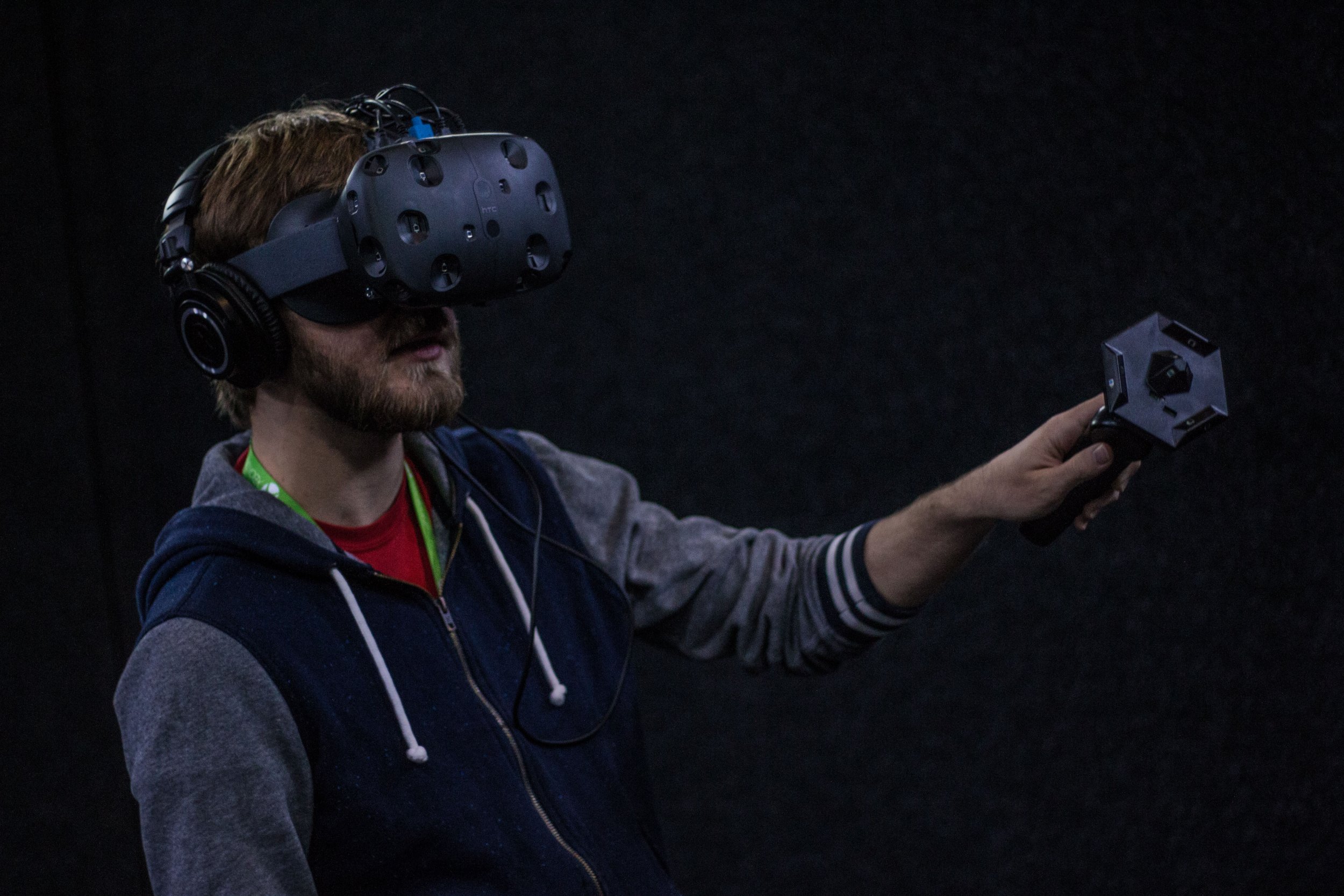 EMERGING TECH
EMERGING TECH
 EMERGING TECH
EMERGING TECH
 EMERGING TECH
EMERGING TECH
Starting today, the price of the high-end PC-based consumer HTC Vive virtual reality headset will drop by $200 to $599 and it will remain there for the foreseeable future.
“Our goal at Vive has always been to offer the best and most advanced VR system and drive mass market adoption for VR across the globe,” said Cher Wang, HTC Corp. chairwoman. “We’re continuing to deliver on that commitment with this new price for Vive, making VR more accessible to a broader audience and driving the entire VR industry forward.”
The move, which HTC calls an appeal to mass-market accessibility, follows price drops in the headset’s direct competitor the Oculus Rift. Oculus VR, LLC dropped the price of its Rift headset twice this year between sales and now it temporarily costs only $399 for the bundle.
“After a bump in sales from Oculus’s Rift discount, Facebook’s company has managed to close in on HTC Vive’s 2-to-1 lead,” Stephanie Llamas, vice president of research and strategy at SuperData, told GamesIndustry.biz. “However, VIVE is still shipping more units, even with its higher price point. While it may seem that Vive is dropping its headset price by $200 in order to follow its competitor’s strategy, I don’t think this was a reactive decision.”
Llamas added that big developer studio games such as Fallout 4 and DOOM are slated to arrive soon. This gives HTC a reason to create a more accessible price for its headset to attract an audience who would be interested in playing those big titles — which already sold millions of copies since their respective launches on PC — in VR instead of on a flat screen.
“I think it will definitely boost the user base, especially if they concentrate on making the software side more seamless,” Llamas said.
A purchase of the Vive also includes a free trial to Viveport Subscription, from which customers can choose up to five VR titles per month to experience. The headset also provides access to Valve Inc.’s distribution platform SteamVR for an even larger variety of VR tools, experiences and video games.
More content is also coming to Vive than ever before, which should attract more customers, according to a recent report from UBM Tech. Vive currently supports more than 3,600 titles across Steam and Viveport with new high-quality games arriving from popular studios.
Titles for Vive include including Google Inc.’s Tilt Brush, a powerful paint and sculpting tool for 3-D artists; EverestVR, taking people to Mt. Everest without the frostbite; and Richie’s Plank Experience, putting people high, high up on skyscraper rooftops. Big video games include Arizona Sunshine, protecting the desert from zombies; Rez Infinite, a call-back to an old but glorious psychedelic polygon-based arcade game; and EVE Valkyrie, a game that puts players in the cockpit of a fighter in the EVE Online universe.
On the enterprise side, Vive has also been pursuing efforts to get VR use adopted for training and fieldwork. The company says that it will continue its work with partners such as Google, Apple Inc., Intel Corp., United Parcel Service, Volkswagen, Salesforce.com Inc. and others.
Recently Vive was touted by UPS for its part in helping prepare new drivers for road hazards using VR. Volkswagen put the Vive to use by developing its own collaborative team VR app capable of placing distant co-workers together in the same virtual room. Salesforce used Vive’s platform to build immersive, visualizations for city planning and urban data to help municipal governments better understand their cities.
According to Steam statistics, HTC Vive maintains a 60 percent share of access to the Steam platform for high-end VR headsets. Over the past year, Vive has maintained its lead by more than 20 percent.
SuperData research reports showed that HTC Vive shipped 42,000 headsets in 2016. It’s direct competitor for PC-based headsets, Oculus Rift shipped only 24,000. By contrast, console-based headset developer Sony Corp. shipped 75,000 PlayStation VR headsets, for the PlayStation 4. And mobile-based headset maker Samsung Corp. made the lion’s share of the overall market, with 4.51 million headsets shipped.
Support our mission to keep content open and free by engaging with theCUBE community. Join theCUBE’s Alumni Trust Network, where technology leaders connect, share intelligence and create opportunities.
Founded by tech visionaries John Furrier and Dave Vellante, SiliconANGLE Media has built a dynamic ecosystem of industry-leading digital media brands that reach 15+ million elite tech professionals. Our new proprietary theCUBE AI Video Cloud is breaking ground in audience interaction, leveraging theCUBEai.com neural network to help technology companies make data-driven decisions and stay at the forefront of industry conversations.